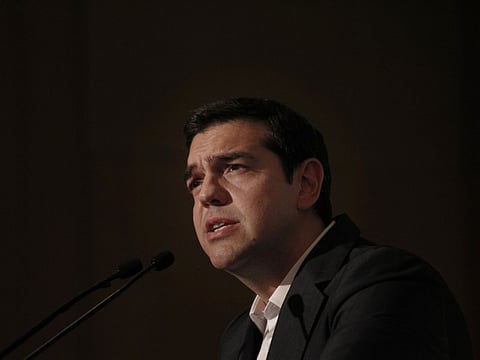EU is partly to blame for uncertainty
Athens has managed to pay its bills, but a political solution is needed at the earliest

For the past six months — and particularly since the election of the left-wing populist government of Alexis Tsipras at the end of January — the prospect of a Greek default has loomed large over the Eurozone and the European Union (EU). The uncertainty about Athens being able to meet its liabilities with the International Monetary Fund (IMF), the European Central Bank (ECB) and the EU itself has weighed heavily on the euro, with the common currency losing one-fifth of its value since the beginning of the year. Euro-based bond yields are suffering as a result of the uncertainty and markets are also feeling the downward pressure from Athens’ precarious finances.
That the uncertainty has lasted so long is in part due to the EU itself, its political leaders having done what EU political leaders traditionally do when faced with a crisis — play for time and defer hard action. The Tsipras government itself has also added to the lengthy uncertainty, repeatedly failing to provide comprehensive plans to satisfy the demands of its creditors in the IMF, ECB and EU — and doing only just enough to keep Greece afloat while also appearing to show its domestic voters that Tsipras and his Cabinet have stood up to the nasty cabal of international financiers hounding Athens for payments.
But let us cut to the chase of this entire saga. Athens gladly applied for and subsequently accepted on two occasions a total of 240 billion euros (Dh1.1 trillion) in bailout funds — and did so in the knowledge that this money would have to be paid back, eventually.
And the so-called troika of the IMF, EU and ECB handed over the two bailouts knowing that they would — eventually — be paid back. This entire dispute can go away if — and herein lies the crux — Athens and Brussels can find the political will to reschedule the bailout terms for eventual payment. Given the attitude of the Tsipras administration, its biting words, its lack of commitment and its tenacity in managing to meet payments when due — Brussels may be reluctant to ease terms. Until then, the uncertainty will continue.
Sign up for the Daily Briefing
Get the latest news and updates straight to your inbox



